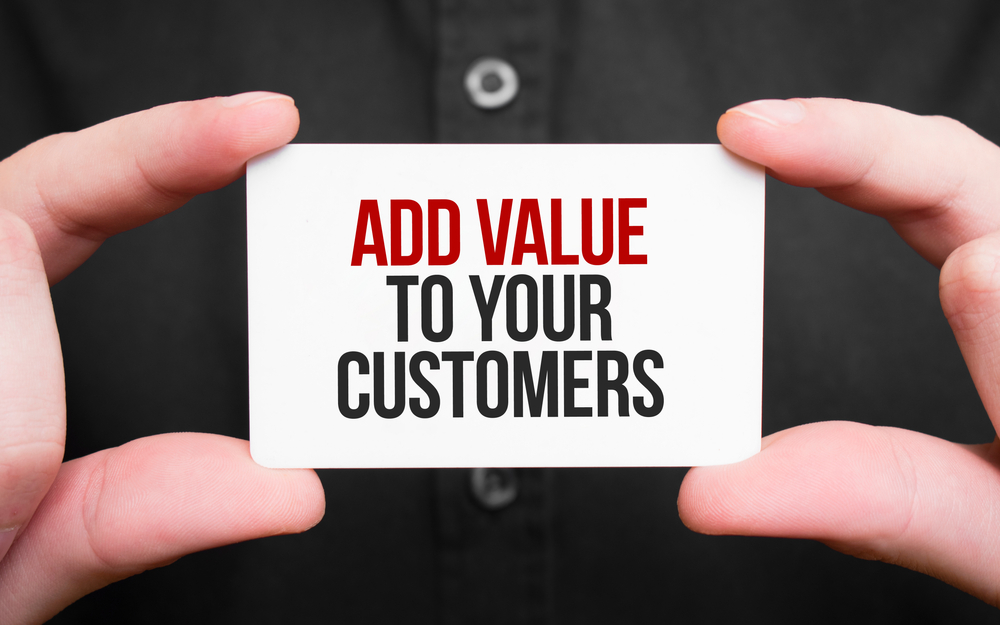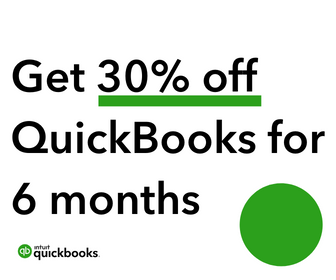The sales profession has been around for thousands of years, and in that time, many products have been created to enhance a sales person’s performance. Sales technology continues to grow as artificial intelligence and new technologies develop. A recent study by Salesforce showed that sales professionals who leverage sales technology outperform their peers. In this article, we’ll introduce you to the eleven sales software categories that we think are the most important for you to be acquainted with.
WHAT ARE SALES TOOLS?
Sales tools are digital technologies used by sales professionals to make their work easier. Sales tools include customer relationship management (CRM), sales intelligence and prospecting, sales acceleration, and data connectors and integrations. Sales tools make the process of closing sale easier. By integrating different platforms, sales reps can stay on top of prospects and customers more effectively.
Sales tools are used to increase the effectiveness of salespeople. Sales tools save time on tedious and time-consuming administrative tasks, allow salespeople to focus on providing value for people and businesses, and help salespeople determine which prospects are most likely to be successful with their product or service.
Because sales employees have become accustomed to using new technology, companies that fail to invest in more modern sales methods risk losing sales and experienced employees. According to LinkedIn’s State of Sales 2021, 94 percent of sales professionals say sales tools help them close more deals, underscoring the importance of investing in sales technology.
11 sales tools categories
Customer relationship management (CRM)
In the business world, customer relationship management (CRM) software plays an integral role in managing your business’ relationships with current and potential customers. It helps you keep track of existing customers and stay on top of sales and marketing efforts. For a lot of companies, a CRM is the first investment they make in terms of sales technology. This makes sense, given that 68% of respondents stated that their CRM system was “very important” to closing deals according to LinkedIn’s State of Sales 2021.
For successful sales, salespeople must keep track of thousands of leads and organize their efforts to connect with them effectively. To optimize these processes and stay on top of their game, today’s salespeople have access to a range of CRM (Customer Relationship Management) software solutions that enhance the way they handle leads. Such platforms automate repetitive tasks and make it easy for salespeople to track and report on their progress.
One of the first investments businesses make in sales technology is a customer relationship management (CRM) system. Salesforce dominates the enterprise market and Pipedrive is popular with smaller firms. Before choosing a platform, you should think about how you want to integrate your CRM with other apps and platforms as your business grows; most vendors have seen UI facelifts since this space was first established, so look for one that won’t hold you back in the future.
Sales intelligence and sales prospecting
Sales intelligence refers to a wide range of technologies that help salespeople find, monitor, and understand information on prospects’ and existing clients’ . Sales intelligence can make it easier for salespeople to know precisely who they should be talking with, what they should be talking about, and when they should reach out to them. Sales intelligence tools provide the contextual information surrounding these contacts, such as purchase history, current contracts, business objectives, and digital footprints.
Sales intelligence tools are increasingly becoming essential to sales professionals, with 62% of those surveyed by LinkedIn reporting that the tools were “very important” in helping them close deals, and 74% of respondents stating that their companies plan to invest more in sales intelligence technology.
In sales intelligence, local data tends to play a strong role. This makes the category more fragmented geographically than others. For example, legislative changes such as GDPR make Europe a more challenging market in which to have contact information on up-to-date datasets. Instead, prospects will likely surface in different areas of the world that may require specialized prospecting efforts. One new example of this type of data includes intent data, as well as industry-specific sources such as real estate data, credit ratings, and vehicle information.
For a first-time buyer looking to buy a sales intelligence tool, the market’s breadth and depth can be intimidating. We’ve listed ten powerful sales intelligence options and some useful criteria that should aid your search.
Sales acceleration
Sales acceleration is a goal-driven strategy to have more sales conversations, shorten the sales cycle, and/or close more deals. Sales acceleration software aims at helping sales personnel improve their efficiency by automating administrative tasks and streamlining sales processes.
In sales, speed is good but control is critical. Sales acceleration technology makes it possible to improve both efficiency and effectiveness by engaging sales people throughout the entire sales process. Sales enablement software is similar to sales acceleration technology, but focuses more on turning data into actionable insights for the individual salesperson and equipping them with quality information, opportunities, and techniques that work. Some vendors use these terms interchangeably.
Sales acceleration is more of an umbrella term for all tools that help B2B sales reps find the right companies to approach and/or enable sales outreach. Coaching tools, email tracking software, tools for predictive analytics, sales engagement software, and outbound dialers are some examples of technology that fall into this category of accelerating sales.
Many vendors use the term “sales acceleration” in their value propositions, but vendors that use this label as their primary categorization instead bundle several capabilities (or features) together from diverse categories.
Leaders in sales acceleration, such as SalesLoft and Outreach, have started to emerge. Vendors that embrace a systematic multi-channel approach will continue to win out in the long run because it’s becoming harder each year for firms to gain prospect attention through traditional methods.
E-signature and document tracking
To sign a contract, you can use electronic signature software such as Signnow. This type of software lets users securely sign electronic records, such as sales contracts and proposals. It helps streamline administrative tasks and reduce overhead by providing a single, unified view of each contract’s processes. As a result, it helps the user create a paperless office.
Many GDPR-friendly solutions offer the possibility to track in real-time when and how a prospect interacts with a specific document. Such solutions allow salespeople to notify decision-makers about prospects who open up their proposals, but this is only allowed if the potential customers are located outside of the EU. Salespeople selling to prospects based in any of the union’s member states have to take the new GDPR restrictions into account before they turn on any tracking feature. Before doing so, they must get consent from customers to track their email activities.
Many e-signature vendors provide notifications for critical dates that affect a contract, such as the cut-off date for renewal. Some services offer templates that allow users to create and store their contracts. More advanced software provides tools for creating and managing contracts electronically, and automating the digital management of a contract throughout its lifecycle. Many of these vendors integrate with third-party applications such as CRMs.
Since the space’s early pioneers focused on offering a digital signature alternative to traditional handwritten processes, new models have emerged that bring collaboration throughout the process: chat capabilities, document tracking, predictive analytics, and so on. Companies expect a faster, more secure process as enterprises switch to e-signatures. Emerging technologies such as blockchain are expected to facilitate the process.
Data connector and integration tools
The growing number of apps and gadgets in our digital lives can be a blessing—or a curse. Think about it: Wherever you are, whatever you want to know, there’s probably an app for that (and so many others). But then there’s the downside of this wide range of different tools—the fact that they’re often independent and not easily accessible from a single system. If you use spreadsheets to keep your contacts or CRMs like Salesforce or Infusionsoft to manage your leads, wouldn’t it make sense to combine those two tools?
Data connectors let you take data from different programs – for example a customer relationship management (CRM) program and a sales automation program – and put it into a third program that makes the information available to all of your employees. Data integration tools work in a similar way, except they combine data from different programs and store it in one central location.
Even if businesses have all the data and tools that they need, they can get tripped up by another challenge—the data is scattered across numerous platforms and solutions. Decreased usability and unavailability of data in real time makes it difficult to access.
Whether your organization has encountered this problem or not, data connectors and integrations like the ones listed can be worth looking into. These tools speed up and simplify the process of centralizing wide varieties of data, while reducing the cost of data projects.
Software that analyzes the performance of sales activities is called sales analytics software. This software should provide sales managers with a granular view of sales, breaking down the information into pieces that are understandable when reviewing the areas in which salespeople, products, and campaigns are performing the best, and where they should improve.
Today, sales analytics has become an essential part of most organizations’ sales reports. Instead of manually tracking and gathering analytics through a tangle of spreadsheets, sales managers can access sales analytics data in one centralized location—sales analytics software. Sales analytics software is usually implemented on top of existing CRM systems, and uses algorithms based on existing data to reveal insights into the organization.
Sales analytics technology is a rapidly growing enterprise trend. In the past, only enterprises with large sales forces have taken advantage of the technology. Thanks to the rise of SalesOps roles in small and medium-sized businesses, more sales analytic tools are now being used by this segment.
Websites can analyze sales performance, build predictive models based on artificial intelligence and machine learning to predict future sales, and estimate customer lifetime value from a very small amount of usage data.
Sales productivity
Productive means being able to produce a substantial amount of tangible end results. Unfortunately, there are often hurdles and obstacles in our way which make it difficult for us to cross the finish line. Fortunately for salespeople, there are tools to help them overcome these barriers.
Sales productivity tools encompass a range of automation and time-saving tools that allow sales professionals to focus on the more critical aspects of the sales process. As you might imagine, this umbrella category is quite broad, encompassing everything from CRM programs to sales calls tracking software, so there’s a wide array of options for salespeople to choose from.
For example, sales productivity tools can help salespeople generate leads, make calls, schedule meetings, write proposals, create pipeline reports, and automate other repetitive tasks. Sales is a productivity game where two factors—quantity and quality—play pivotal roles. However, salespeople will often end up spending significant amounts of their time on manual or repetitive tasks that aren’t especially value adding and could easily be avoided. By giving your salespeople access to tools that allow them to automate these tasks, you’re leaving money on the table.
Marketing automation and ABM
Marketing automation and lead generation software helps businesses reach potential customers by automating marketing tasks such as email marketing, social media posts, and lead generation these activities build up a rich database of contacts through conversions, particularly when a person exchanges her contact details and possibly information about the business they work for in exchange for the valuable content from your company.
Account-based marketing software allows you to craft personalized buying journeys that users can take when they come to your homepage. These personalized journeys are more likely to entice visitors through a purchase.
If customer relationship management (CRM) software is often the first investment, marketing automation is a close second, and a staple for most modern sales teams.The largest providers of customer relationship management (CRM) software nowadays offer marketing automation services that extend your CRM data to help focus your campaigns. Account-based marketing is one of the harder categories to define: some vendors focus on account data to help focus your campaigns, others on engaging with companies once you have a list ready. At the end of the day, all of these software providers are potential vendors for account based marketers, according to their needs and business situation.
Sales enablement and digital sales rooms
As transactional B2B sales become more automated, whether by CRM systems or other software, salespeople will have more time to devote to larger, more complex deals. For example, they will schedule discovery meetings to better understand buyers’ needs and write longer proposals to supply the information a buyer needs to make an informed decision. Both buyers and sellers will play a greater role in these deals.
Parties may strengthen their relationships with prospective buyers by using shared digital portals and microsites to chat and share relevant materials. These sites are useful for removing buyer friction, and sellers are able to track which content clients view. This can be highly useful for analysing the content that creates the highest impact.
ContactZen has released the Digital Sales Room as a newly formed category, and many sales enablement platforms and e-Signature providers have rebranded themselves as Digital Sales Room vendors. ContactZen reported that salespeople will most likely find it useful when creating unique buying experiences for customers gets easier.
Customer success
Customer success software helps businesses keep customers happy. It optimizes relationships with customers, ensuring that each customer experiences the outcome they expect as they use a product or service. Surrounding your customers with the right tools can be vital to the preservation of revenue and growth while boosting customer advocacy.

Customer Success Solutions is a software product that helps businesses build or assess customer profiles, capture customer data, history, and feedback, engage customers throughout their lifecycle, provide feedback and success scores, and predict future growth or red flags.
Customer success software helps businesses monitor and improve their relationships with customers in order to increase customer satisfaction and retention. Additionally, this type of software often integrates with other types of software that businesses use, like CRM, help desk, and social media management tools, so businesses can keep all of their data in one place.
For businesses that provide customer success software, the big data of customer data is a huge benefit. By allowing them to centralize all the information about their customers, and give those customers a 360-degree view of their relationship with the business, these businesses have an easier time increasing customer satisfaction, decreasing customer churn and increasing upsells.






